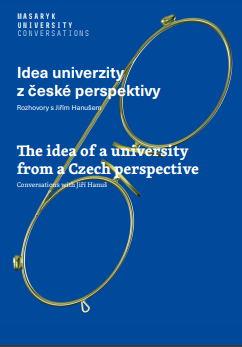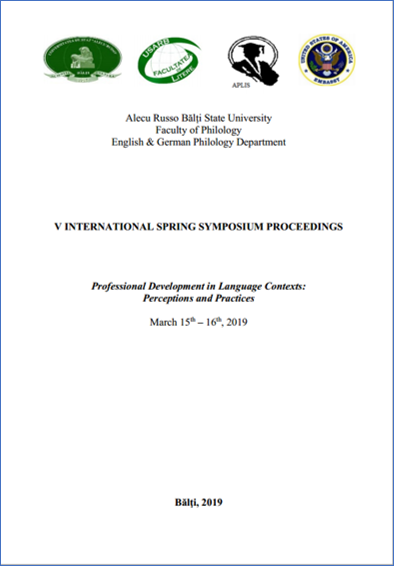
We kindly inform you that, as long as the subject affiliation of our 300.000+ articles is in progress, you might get unsufficient or no results on your third level or second level search. In this case, please broaden your search criteria.














The article examines the role memory plays in the process of acquisition of French as a foreign language while using drama in the classroom. The suggested activities are designed to help learners improve and train their memory while working with the play Cocorico by Sylvaine Hinglais. The activities can be used with all learners regardless of their language proficiency level.
More...
The traditional taboos of mankind are the taboos of the sacred and of the impure. The issues of language impoliteness, verbal aggression and taboo violence have only recently come under a more intensive scientific scrutiny. The paper offers some possibilities for successfully avoiding of taboo words, wherefore it can also be a contribution for a better understanding of taboos in our own, as well as in other cultures and languages. However, the existence of differences between the languages was not sufficient to predict target-deviant behaviour. The question whether language dominance determines cross-linguistic influence has been discussed controversially in studies on simultaneously bilingual students. Flouting taboos entails direct or indirect, social or cultural sanctions.
More...
The article examines the sometimes confusing use of the terms competence and skills in the Moldovan language education context. Teachers of English as a foreign language seem to closely follow the guidelines of the national curriculum, which does not seem to facilitate the teachers’ work in their design process. The fact that the term competence is opposed to that of skill in TEFL literature seems to be ignored by the authors of the curriculum. Thus, teachers feel forced to use the exact terminology from the curriculum, even if it can cause confusion.
More...
The article is devoted to the problem of intellectual development of children of preschool age in the process of studying folk riddles. The author reveals the concept of "riddle", highlights the principles of the selection of riddles and groups of riddles that are used in pre-school. The work details the methods of work: a) with riddles – descriptions, b) with riddles containing the key distinguishing feature of the object, c) with riddles in which the description of the object is given through negation; it proved that the effectiveness of this technique has a positive effect on children's intellectual development.
More...
The article deals with the application of English proverbs and sayings for effective teaching of English Methodology. The author suggests applying them for mastering the principles of teaching in general as well as teaching English language in particular since proverbs describe the millennium-long experience of people, reflect valuable pedagogical ideas. The main focus of the author is to consider a large number of English and Ukrainian proverbs, to select the ones that concern pedagogical approaches to teaching, and to group them according to the principle mentioned. The examples also include some Ukrainian and Russian proverbs as well as English quotation when it is appropriate. Following the classification of principles developed by A.N. Shchukin, one to twelve examples are selected to exemplify each principle. The principles of teaching are of four groups: didactic (10 principles), psychological (4 principles), methodological (5 principles) and linguistic ones (3 principles). In the course of the study we came to the following conclusions: there is a large number of proverbs on pedagogical and methodological principles, the use of proverbs leads to the development of abstract and associative thinking of would-be teachers. The author claims that proverbs should be widely used in lecturing and suggests a range of tasks for students: using a proverbs give some advice to a pupil, pupil’s parents or a colleague, explain a proverb, share your school experience using a proverb, express you agreement or disagreement with a proverb, choose a proverb with a different meaning, find Ukrainian or Russian equivalents for an English proverb, discuss the relevancy of a proverb to modern conditions, match a proverb to a principal it describes.
More...
The following article examines two important components to aid students develop their English language oral skills and to enhance their understanding of literature and thinking skills. The first component is the use of the Question and Answer Relationship Format to help teachers elicit appropriate questioning and use strategies to understand literature and nonfictional text in a deeper fashion. The second component is the use of Literature Circles. This strategy, widely used in the United States, allows students to read fictional texts and discuss in depth all the components of a literary piece. Consequently, this technique also triggers students’ oral skills while in the classroom. Such a method is ideal for English Language Learners from an intermediate to an advanced and near proficient levels in any educational context. Thus, the authors also share insights from their own classroom experience while using the aforementioned techniques.
More...
The article describes the relationship between language and culture as well as the ways of discussing about cultural identity and cultural diversity at EFL classes to university students. The author offers an analysis of researchers' views of the interaction between culture and language and suggests some practical ideas for intercultural dialogue at EFL classes. The author of the article highlights the idea that knowing the language gives an appearance of understanding people of different cultures but does not give a sufficient knowledge about the foreign culture. Taking into account that verbal as well as nonverbal communication involves much more than transmitting a particular message and it reflects everyone's identifications, keeping their cultural values, the author of the article suggests several practical ideas for EFL classroom to provide a real interaction between cultures through comparison of different cultural values.
More...